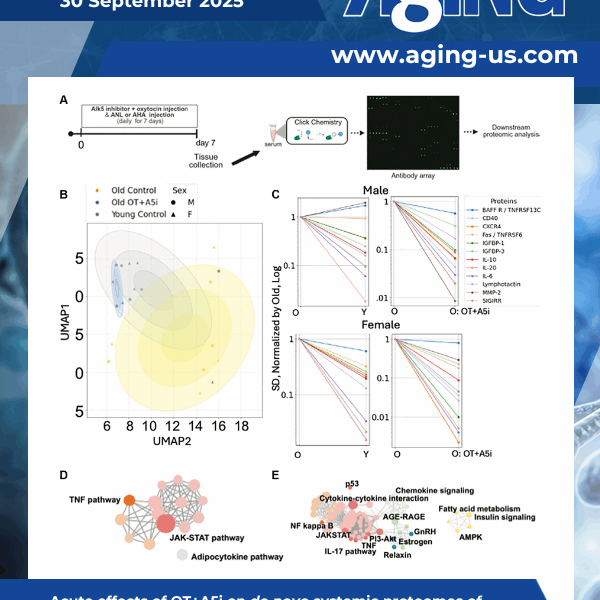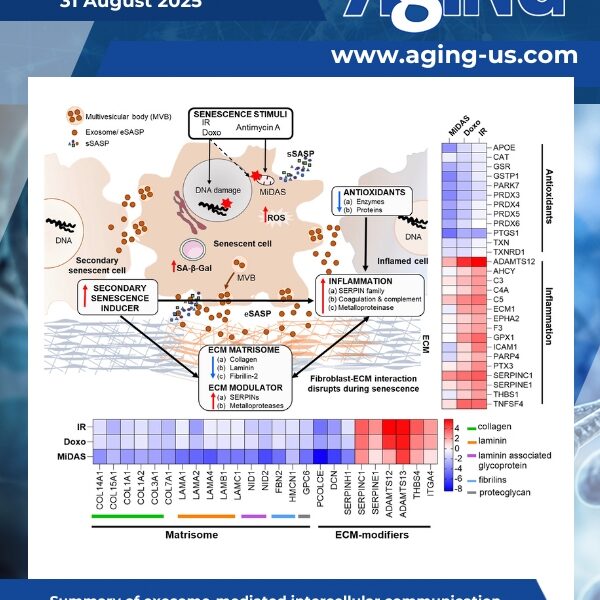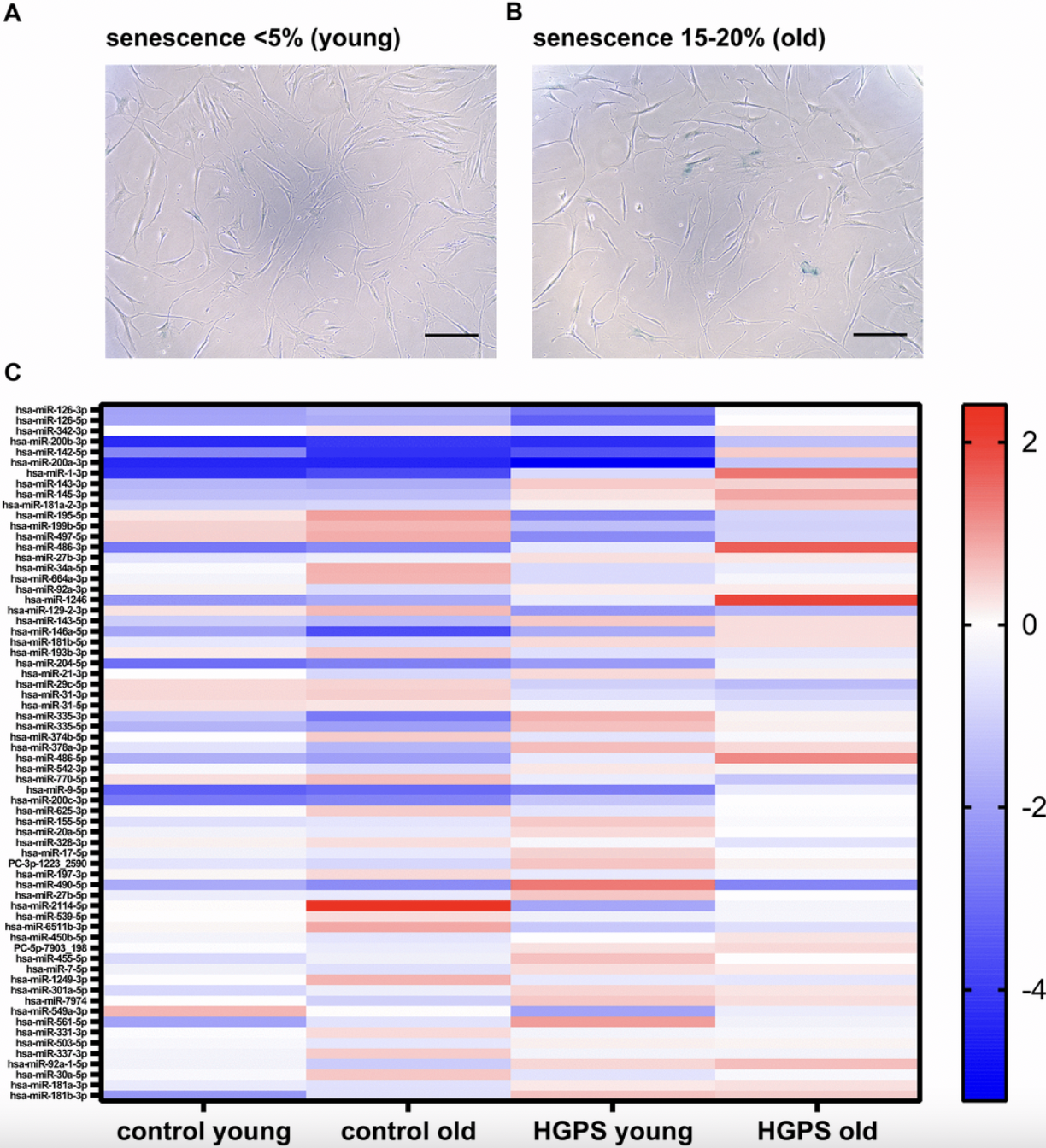Aging-US Research

As people age, it is common to experience some memory lapses or slower thinking. Although this is often a normal part of aging, it can still affect a person’s quality of life. Scientists have been investigating ways to slow or prevent cognitive decline, and growing evidence points to the potential role of social interaction.

As life expectancy increases, there is growing interest not only in extending lifespan but also in improving the quality of those additional years. To address the physical and cognitive decline that often accompanies aging, researchers have explored a variety of strategies.

Here, we examined whether simultaneous calibration of pathways that change with aging in opposite directions would be more effective in increasing healthspan and lifespan. Moreover, we started with the challenging age group – frail 25-months-old mice that are equivalent to ~75-year-old people.

Idiopathic Pulmonary Fibrosis (IPF) is a progressive lung disease that primarily affects people over the age of 60. It causes scarring in the lung tissue, which gradually reduces lung capacity and makes breathing difficult. Despite years of research, the exact causes of IPF remain largely unknown, and current treatments mainly aim to slow its progression rather than reverse or cure the disease.

As the global population grows older, understanding what drives the aging process is becoming increasingly important. Diseases like Alzheimer’s, cardiovascular conditions, and cancer are more common with age, yet many current treatments only manage symptoms rather than addressing the underlying biological causes.

Senescence emerged as significant mechanism of aging and age-related diseases, offering an attractive target for clinical interventions. Senescent cells release a senescence-associated secretory phenotype (SASP), including exosomes that may act as signal transducers between distal tissues, and propagate secondary senescence.




